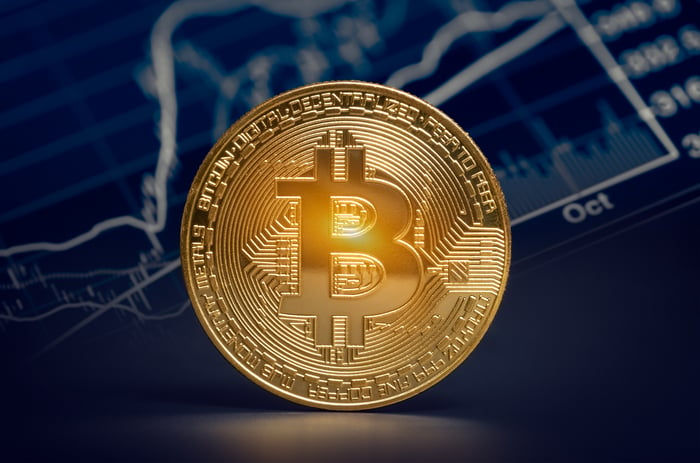Just over 15 years ago, the world changed. Born out of the wake of the Great Recession, Bitcoin's (BTC -1.51%) journey since then has been nothing short of historic. Originally worth just fractions of a penny, the world's original cryptocurrency is now worth more than $60,000.
During this ride, there has been no shortage of critics and naysayers, yet Bitcoin continues to assert its dominance as a compelling investment option. To the dismay of those critics, there are several factors indicating that its upward trajectory is far from over. Here are five key reasons why Bitcoin is poised to surge higher, whether you're a skeptic or a believer.

Image source: Getty Images.
1. The inflation conundrum
In today's economic climate, inflation has become a hot topic. While progress has been made since inflation peaked at 9%, the unfortunate reality is that fiat currencies will likely continue to be debased. While it's complex and just one factor, inflating currencies is one of the primary means for governments to manage ever-growing debt while trying to keep economies afloat.
As inflation persists, it will force investors to seek alternatives to preserve their wealth, a role Bitcoin is perfectly suited to fill. With its finite supply, deflationary characteristics, and decentralized nature, Bitcoin could prove to be a viable means for those looking to preserve purchasing power and find safe harbor from debasement of fiat currencies.
2. Institutional adoption and the rise of Bitcoin ETFs
The recent introduction of spot Bitcoin ETFs marks a significant milestone in Bitcoin's journey to mainstream acceptance. These ETFs not only provide retail investors with easy access to Bitcoin through retirement accounts like 401(k)s and IRAs, but also serve as a validation of Bitcoin's legitimacy. What was once deemed an obscure internet money has now been welcomed with open arms by Wall Street.
With Bitcoin recognized as a viable asset, we are likely only at the tip of the iceberg in terms of seeing money from traditional finance pour in. Over time, as Bitcoin proves its worth, it will attract more capital from deep-pocketed institutional investors, such as those managing other ETFs and looking to increase the performance of their funds. While still fresh, the arrival of spot Bitcoin ETFs opens up the cryptocurrency to new customers, and with that, new demand that will be forced to compete for its finite supply.
3. Programmed for success
Bitcoin's inherent design prioritizes increasing scarcity over time. To accomplish this, Bitcoin relies on an event hardwired into its code known as the halving. Approximately every four years, these events cut Bitcoin's inflation rate in half, and have a profound effect on its supply dynamics.
With each halving that passes, the diminished supply of new Bitcoins entering circulation makes it so that even if demand remains constant, it places upward pressure on its price. Yet, as we have seen over the years, demand for Bitcoin has been increasing -- and when combined with the halving, it can cause its price to soar.
4. Generational shift in investment preferences
The rise of millennial and Gen Z investors will introduce a new era of digital asset adoption. Unlike previous generations, who may have been skeptical of digital currencies, younger investors are more open to embracing innovative financial technologies.
For millennials and Gen Z, who grew up in the digital age, Bitcoin's intangible nature and decentralized framework hold greater appeal. As these demographic cohorts come of investing age, they are likely to drive demand for Bitcoin, further fueling its adoption and price appreciation.
5. Proven resilience and perseverance
Despite facing skepticism and criticism since its inception, Bitcoin has continued to defy expectations and prove its resilience. With each passing day that Bitcoin maintains its network integrity and reliability, the odds of its failure diminish.
As Bitcoin proves its viability as a decentralized store of value, medium of exchange, and hedge against inflation, confidence in its longevity and utility will grow, thereby attracting more investors and strengthening its position in the global financial ecosystem.





